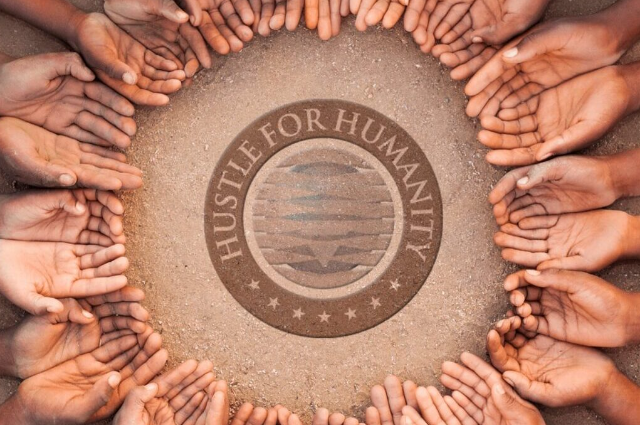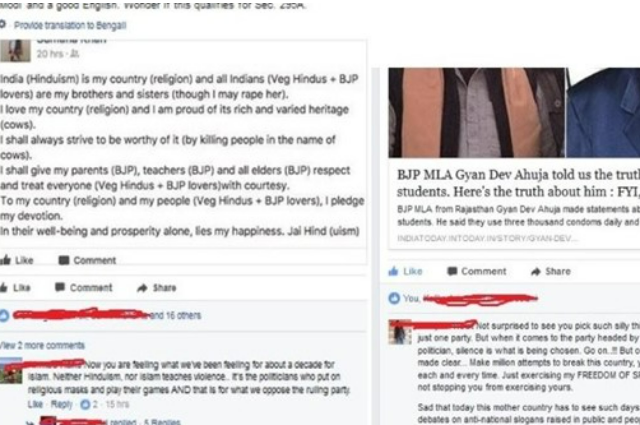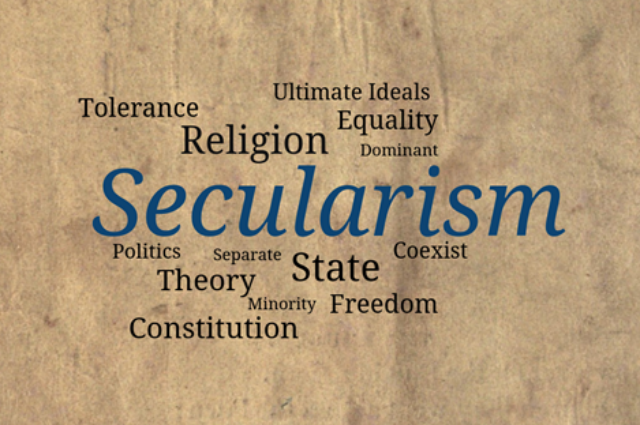
My name is Soumyadeep Khan. No, please don't pronounce Khan from the epiglottis (1), and don't feel obliged to reassure yourself and me with the famous assertion, "Your name is Khan and you are not a terrorist." I usually avoid explaining my surname but I will do so here because it has placed me at an unusual intersection of religions and castes and the reactions these evoke. You see, I'm not a Muslim. Indeed, I am officially a Hindu with a Bengali heritage whose surname is a title or "upadhi" (2) (like Chowdhury, say) given to a forefather during the time of the British rule. Most people do not know this and nor do I tell them, but more on this later.
Like many graduates of the 70s, my father's dream was to hold a (government job)—it was one he fulfilled and the job took him out of his home state to other parts of India. Little did he know that his exposure to new cultures and climes and creeds would change his outlook forever, leading him to raise both his children as independent, sensitive and secular souls. To us this ethos was natural—there was nothing extraordinary about it.
Recently, a much-respected colleague "apologised" to me and said, "Oh! I didn't know you were not a Muslim." Then she hugged me. My only thought—what if I WAS a Muslim? Then what?
We grew up in different townships in a mines' belt of India, and the colonies and schools usually had an eclectic population, representing different religions, castes, and communities. While my paternal grandmother might have been appalled to see the extent of cultural assimilation, my parents had no such reservations and we were never exposed to a sentiment of "us vs. them." Durga Puja, Eid, Rakshabandhan, Diwali, Christmas — we celebrated them all with gusto. Siddiqui uncle's sons were my fast friends, and Elizabeth was buddy. The domestic help was addressed respectfully as "pishi" (aunt) and the driver was "uncle."
But of course, this idyll could not last forever, especially as we started growing up and branching out into the world. I remember being surprised when some people made an issue out of my bestfriend at the time belonging to the "reserved category." I was fully aware of this fact but could not see why this was a problem. It was my first real encounter with the ugliness of caste, and the more I emerged from the cocoon of my youth, the more I started to face incidents of this sort.
By the time I went to a North Indian university to pursue my bachelor’s degree, I found myself in a position where higher education intersected with bias. People were curious about my surname—sometimes the questions were friendly and at other times they were tinged with hostility—and at the time I'd usually give them a quick background of my antecedents. In this period of my life, I was also exposed to a slew of my classmates' stereotypes and prejudices about other castes and communities. My upbringing meant that I never joined in on the "fun"—indeed, it disgusted me. I remember how badly I fought with a then friend who abused someone as a "kamjaat kamina" (bloody lower caste ass). If anything, my revulsion to these attitudes made me more open, liberal and secular in my approach than ever.
A Khan I knew (a "real" Khan, so to speak) stopped speaking to me when he realised I was not a Muslim.
Then one fine day after cracking a national-level case study competition, I was called for an interview. The first question posed to me was if I was a Khan. To which, I said a simple yes—this was the first time I didn't explain it further.
After getting through another internship in a permanent executive position, when I was undergoing an orientation session with my colleagues, another senior asked me the same question. Again I said "yes" without further explanation. However, he persisted and asked me if I was a Muslim. I asked him if it mattered. He said it did, to which I replied that I was a creature of the human race and followed humanity. He laughed out loud and asked me the same question again. I got up and left. Interestingly, my surname bothers people on the other side of the religious divide too. A Khan I knew (a "real" Khan, so to speak) stopped speaking to me when he I was not a Muslim.

Such encounters kept happening, sometimes in subtle ways and sometimes in even more glaring ways. To my unhappiness, I found even friends from my ask questions of the sort that had never occurred to them earlier. Especially post 2014, when the Modi government was elected into power, I noticed a spike in how often people invoked religion and caste in arguments. In debates where I held an opinion contrarian to the majoritarian view, people would attribute it to me being a "Khan"—short-hand for "anti-national" perhaps (the screenshot above as image, is a small sampling)! These insinuations would sometimes be flung at me from classmates who happened to not know my background because I'd never felt the need to "explain" my surname.
And let me tell you, what I've described here is just the tip of the iceberg. Thanks to my surname I am exposed to bias in all its gloriously grim hues day in and day out. For example, recently a much-respected colleague "apologised" to me suddenly and said, "Oh! I didn't know you were not a Muslim." Then she hugged me. My only thought—what if I was a Muslim? Then what?

I wish to carry my name as it is... I want to show that everything is not as it seems, especially when it comes to surface attributes like name, religion, caste. Only humanity matters.
So no, I'm not a Muslim, and my surname is nothing but a relic from the colonial era. Yet I will not change it even if it makes me more likely to be denied a visa to the USA. I wish to carry my name as it is because in this bigoted world we need people to take the right stand against stereotypes and biases and not be forced to bend to them. I want to show that everything is not as it seems, especially when it comes to surface attributes like name, religion, caste. Only humanity matters.
. . .
END NOTES:
- My name is Khan. Kh. Kh. Kh. NOT from the epiglottis: linguistrix.com
- THE STORY OF THE KHAN: drsatyakamphukan.wordpress.com
. . .
